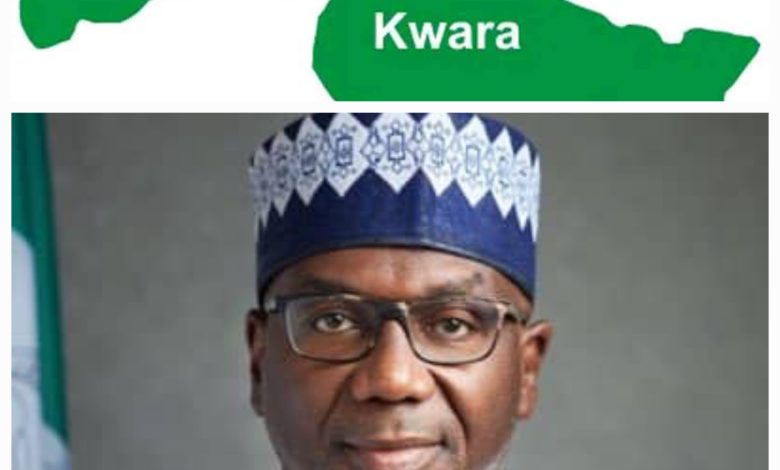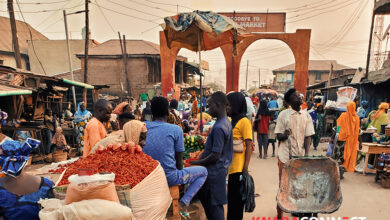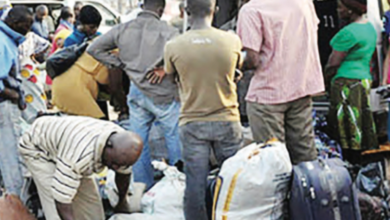Group Criticizes ₦70,000 Minimum Wage for State Employees in Kwara * Says wage reduces gap between lowest and middle-level workers * Urges Govt to reevaluate pay scales for workers in levels 15, 16, and 17

By Omowumi Omotosho
A sociopolitical organization of young politicians from Kwara State, the Kwara Advocacy Network, has expressed dissatisfaction with the recently approved ₦70,000 minimum wage for state employees. The group highlighted concerns over the increasing disparity in income between workers in Kwara and those in neighboring states.
The group particularly criticized the unequal salary structure for higher-ranking officials, urging Governor AbdulRahman AbdulRazaq and his administration to reevaluate the pay scales for workers in levels 15, 16, and 17, ensuring they align with traditional standards.
Recall that last weekend, Governor AbdulRazaq approved a minimum wage of ₦70,000 for the state’s lowest-paid workers.
However, in a statement, the leader of the Kwara Advocacy Network, Mallam Bello Abubakar, made available to journalists in Ilorin on Thursday, the group claimed that the kwara state minimum wage structure was poorly thought out and could exacerbate poverty among civil servants.
The group argued that while the new wage might appear as progress, it is likely to create additional challenges and confusion. They also criticized the administration for failing to address the growing income inequality between workers in Kwara and those in neighboring states.
The group stated, “The disparity, once a source of frustration, has only worsened under this leadership. The gap in wages and opportunities continues to widen”, the statement said.
“Before the introduction of the new ₦70, 000 national minimum wage, level 13 officers in Oyo State earned between ₦120,000 and ₦130,000 as monthly salary, whereas their counterparts in Kwara are paid less than ₦75,000.
“Even with the implementation of the new minimum wage in Kwara as recently announced by the government, a level 13 worker will now be paid ₦101,000, which is still far less than what his counterpart in Oyo used to get under the state’s old salary structure.
“This exposes the duplicity in Governor AbdulRazaq’s much-publicised new wage scheme for Kwara workers. A critical look at the new wage structure will reveal that there’s nothing much to celebrate or be happy about for Kwara workers when you consider the fact that Kwara is among the top four states where prices of food and other essential items are most expensive, according to latest statistics from the NBS”.
The group also emphasized, that “the recent pegging of ₦70,000 minimum wage for lower-level workers may seem like a progress, but in reality, it creates more confusion and problems. How can a primary school certificate holder who is on grade level 2 or 3 earn ₦70,000, whereas his senior on level 7 is to be paid around ₦76,000? How do you justify that insignificant difference?
“The gap between the lowest and middle-level workers is shrinking for the wrong reasons—not due to wage improvements, but because of ill-conceived arrangements and policies of the government.
“This clearly demonstrates the government’s failure to recognise the value of hard-earned experience and the need to reward it appropriately. Governor Abdulrazaq and his advisers must have closed their eyes to this obvious reality.
“It will be recalled that when the ₦18,000 minimum wage was implemented, a lower cadre officer on levels 1 and 2 was earning ₦18,000 as monthly pay, while an NCE holder on level 7 was being paid ₦30,000, making a difference of ₦12,000, which as that time, could buy two bags of rice”.
The group further pointed out that with the introduction of the ₦70,000 minimum wage, the salary gap between an unskilled worker on levels 1 or 2 and a degree holder on level 8 has now shrunk to under ₦10,000 per month.
“In Nigeria of today, what’s the value of ₦10,000 in the market? I could also remember that during the ₦18,000 minimum wage era, when a worker gained promotion from level 7 to 8, about ₦4,000 was added to his salary, but today, only a meagre ₦2,145 is added to the salary of such worker. Yet, the present administration will go to town with drums to say it prioritises the welfare of workers.
“Equally, under the previous dispensations of ₦18,000 and ₦30,000 minimum wage, the negotiation teams put into consideration the fact that a level 15 officer is entitled to have a domestic staff, while level 16 and 17 officers are entitled to have 2 or 3 domestic staff, and this reflected in their monthly pay.
“The differences between the salaries of level 14 and 15 workers under 18,000 minimum wage were more than ₦18,000 and it was around ₦40,000 under the ₦30,000 minimum wage structures.
“Today, reverse is the case. With the ₦35,000 flat rate approved by Governor Abdulrazaq as consequential adjustment for senior workers, a level 15 officer just gets a ₦35,000 increase in pay instead of the ₦70,000 he is supposed to receive”.
The group opined that,”in the interest of workers, particularly the senior cadres, Governor Abdulrazaq and his team must review the salaries of workers on levels 15, 16, and 17 to ensure they align with the existing tradition. It looks like ‘Orisa Rahmoni o fe gbe osise Kwara’.
“Even more concerning is the growing divide between workers in different sectors. Senior Secondary School teachers (TESCOM), once paid significantly more than their counterparts in SUBEB and local governments, now find themselves on the same low salary scale.
“Abdulrazaq’s administration chose not to raise SUBEB salaries to match that of TESCOM. Instead, it lowered the TESCOM workers’ pay, dragging them down to the same struggling level. It’s an approach that offers no real solution to the workers’ financial hardship.
“The minimum wage of ₦70,000 isn’t helping either. With inflation soaring and the price of fuel hitting an all-time high, whatever benefit or succour this wage increase was supposed to bring has already been wiped out. Workers are left with barely enough to cover basic living expenses”.
“Kwara workers cannot continue to suffer in penury while workers in other states, even at the junior level, are moving forward. The people deserve better, and it’s time Abdulrazaq took real steps to fix the growing issues”.





